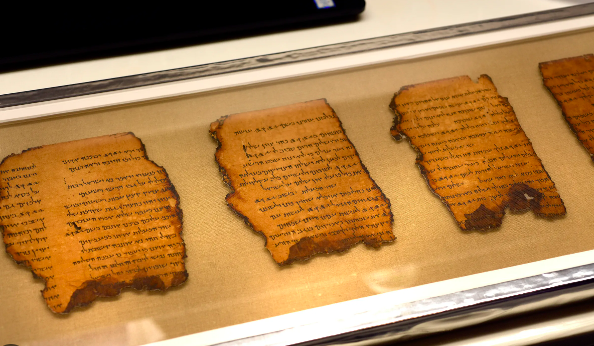The Dead Sea Scrolls are a collection of ancient Jewish manuscripts discovered between 1947 and 1956 in the Qumran caves near the Dead Sea in Israel. These scrolls date back from the 3rd century BCE to the 1st century CE and comprise a wide range of texts, including biblical manuscripts, sectarian texts, Jewish religious writings, and various other documents.
Several factors contribute to the immense importance of the Dead Sea Scrolls:
- Biblical Texts: Among the scrolls, there are fragments of every book of the Hebrew Bible (except for the book of Esther). These biblical manuscripts provide invaluable insights into the textual history of the Hebrew Bible, shedding light on its transmission, variations, and early interpretations.
- Understanding of Second Temple Judaism: The Dead Sea Scrolls offer significant insights into the religious, social, and historical context of Second Temple Judaism, a crucial period in Jewish history that laid the foundation for both Rabbinic Judaism and early Christianity. The texts reflect the beliefs, practices, and debates of Jewish groups during this era.
- Early Jewish Sectarianism: The scrolls provide evidence of the diverse religious landscape during the Second Temple period, including the beliefs and practices of various Jewish sectarian groups. The most notable group associated with the Dead Sea Scrolls is the Essenes, though not all scholars agree on this identification.
- Language and Linguistic Studies: The Dead Sea Scrolls include texts written in Hebrew, Aramaic, and Greek. These manuscripts have been instrumental in advancing our understanding of ancient Semitic languages, linguistic evolution, and the nuances of biblical Hebrew and Aramaic.
- Historical and Archaeological Insights: The discovery of the Dead Sea Scrolls in the Qumran caves has provided significant archaeological evidence about the lifeways, settlement patterns, and material culture of the people associated with these texts. It offers a window into the socio-political landscape of ancient Judea and its surrounding regions.
In summary, the Dead Sea Scrolls are crucial for biblical studies, understanding Second Temple Judaism, exploring early Jewish sectarianism, advancing linguistic research, and providing historical and archaeological insights into the ancient Near East. Their discovery remains one of the most important archaeological finds of the 20th century, reshaping our understanding of Judaism, Christianity, and the development of biblical texts.
